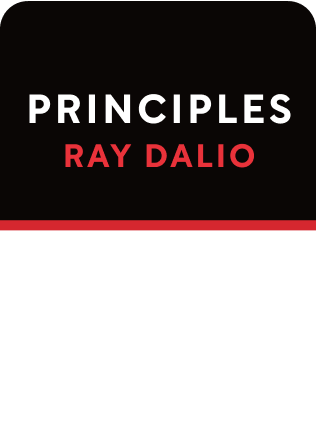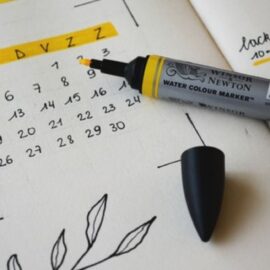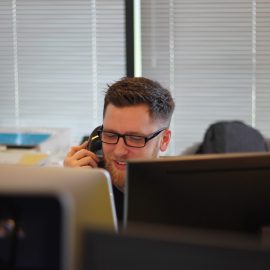

This article is an excerpt from the Shortform summary of "Principles: Life and Work" by Ray Dalio. Shortform has the world's best summaries of books you should be reading.
Like this article? Sign up for a free trial here .
For Ray Dalio, mistakes are a part of any workplace. But why is it important to make mistakes and learn from them?
According to the principles of Ray Dalio, mistakes are a part of life and a normal part of the workplace. But it’s more important to embrace mistakes and use them to improve yourself.
Keep reading to find out more about Ray Dalio, mistakes, why what they mean.
Ray Dalio: Embrace Your Mistakes
Ray Dalio’s mistakes philosophy is simple. Recognizing your mistakes and feeling the pain is critical to finding the truth. Here are concepts that help you get past the ego barrier.
Mistakes happen all the time. It’s more important to recognize mistakes and learn from them, than to cover them up and make your problems worse.
- Parents and schools overemphasize the value of having the right answers all the time. The best students in school tend to be the worst at learning from mistakes, because their ego is centered around being right and mistakes are painful to them.
Pain is OK. It’s nature’s reminder that there’s something to learn. Dalio sums it up in his equation, “Pain + Reflection = Progress”
- Develop a reflex for reflecting on pain, rather than avoiding it. When you make a mistake, relish the chance to get better, rather than being ashamed about it.
- Pain is a necessary part of getting stronger. To gain strength, you have to push against your limits, which is painful. If you’re not feeling pain, you’re probably not being aggressive enough with your goals.
- Even in the most painful situations, you usually have the strength to go on. Research shows that people who embrace huge setbacks, such as losing a job or having a limb amputated, end up just as happy or happier than they were before.
Don’t blame bad outcomes on anyone but yourself. Take full responsibility for mistakes, so that you don’t gloss over them and ignore the learning opportunity. This is an important part of Ray Dalio’s mistake theories.
- Imagine you’re learning how to ski when you fall down. How silly would it be to criticize your ski instructor for not shifting your weight properly for you?
Treat each mistake like a puzzle that, after you solve it, reveals a gem. Each gem continuously makes you stronger, and more gems help you ascend to higher levels of play where the challenges get greater.
- Think about this like a game, where you progressively collect equipment and tools and get stronger.
- Instead, if you refuse to improve yourself, you will be stuck at the same level for a long time. If you look back on your past self and aren’t embarrassed by how dumb you were, you haven’t learned much.
As powerful as you think your brain is at designing the right solution from scratch, it’s possible that adaptation through trial and error is even more powerful.
- As a biological analogy, viruses that don’t have a brain adapt at a rate that far outpaces mankind, even despite all of man’s conscious thinking.
Improving Yourself is Life’s Greatest Reward
We have evolved to crave self-improvement. Why do we feel this? Like most biological behaviors, this feeling is likely better for the survival of the individual and the species. Organisms that constantly felt the desire to improve themselves and push their limits likely succeeded above organisms who were content being in stasis. According to Ray Dalio, mistakes help us do this.
It’s not always clear that you’re striving for self-improvement. When you work each day and set goals for yourself, you may think that you’re striving for material rewards, like more money or a bigger house, and that these rewards will make you happy. But in reality, the real prize that gives you the most satisfaction is getting better.
The prizes you’re chasing after are just the bait. Chasing after them forces you to struggle and evolve, which is the real goal. Dalio notes that, ultimately, achieving more does not improve your life significantly. Beyond the basics like shelter, relationships, and food, the benefit of the marginal improvement drops off quickly. But the struggle makes you stronger, and that delivers satisfaction.
Evolving and getting stronger helps you ascend to higher and higher levels, allowing you to tackle bigger challenges. What once seemed impossibly complex becomes simple.
Because the struggle for self-improvement is so fulfilling, don’t deprive other people of their chance to struggle. Deny them what they want to give them the opportunity to struggle, which will lead to strength. This is why Dalio plans not to leave too much money to his descendants, beyond covering the basics.
Ray Dalio’s Examples of Embracing Mistakes
The Hero’s Journey from Joseph Campbell
Heroes start as ordinary people who are drawn by a call to adventure. This leads them down a road of trials with battles, successes, and failures. According to Ray Dalio, mistakes are part of what makes this possible.
They gain special powers over time, become increasingly successful, and this leads to larger battles.
They experience one very big failure (“abyss”) that tests their resilience; if they make it through, they undergo a metamorphosis.
They ultimately get the largest reward (the ultimate boon) which is special knowledge about how to succeed, earned throughout the journey.
(Shortform note: find more about this in our summary of Joseph Campbell’s The Hero with a Thousand Faces.)
Dalio’s Biggest Failure
Dalio’s most painful failure came in 1982 during the Latin American debt crisis. He believed Mexico’s default was just the beginning of a depression, and he predicted this was an “absolute certainty.” To his surprise, loan restructurings and the Fed’s actions caused a resurgence in the economy.
Dalio bet incorrectly and lost pretty much everything, including his employees. He felt like he was back in 1975, starting Bridgewater from the beginning.
Mistakes at Bridgewater
If you’re an employee at Bridgewater, each time you make a mistake, you’re responsible for adding it to an “error log.” If you log your own mistake, you’re OK; if someone else logs it for you, you’re in big trouble.
Dalio notes that plenty of people at Bridgewater make very costly mistakes. A common corporate reaction is to fire these people, but Dalio thinks this is a huge mistake since it just encourages people to hide their mistakes. Instead, reflecting on mistakes as a team and striving to do better is the best way to handle mistakes.
Embrace Reality and Relentlessly Find the Truth
Finding the truth is the most important thing possible to make the best possible decisions you can. Making the best decisions gets you closer to your goals.
Two things get in the way of finding truth: 1) your ego and emotions, 2) your blind spots.
Your Ego
What holds a lot of people back from the truth is their ego. Many people’s egos center around being right and looking smart. But everyone is wrong a good portion of the time, and ignoring this is blinding yourself to your mistakes and ways to improve yourself.
To deal with the emotional pain of finding truth, see life as a game, where the object is to get around a challenge and reach a goal.
Instead of declaring “I’m right,” ask, “How do I know I’m right?” You can’t be sure of anything—there are always risks that can hurt you badly, even in the safest-looking bets. Always assume you’re missing something
Embrace Your Mistakes
An important truth people commonly ignore is their own weaknesses and mistakes. Thinking about their mistakes causes them pain.
By ignoring your weaknesses and mistakes, you are handicapping yourself in achieving your goals.
Mistakes happen all the time. It’s more important to recognize mistakes and learn from them, than to cover them up and make your problems worse.
Mistakes and pain are nature’s reminder to learn. You must reflect on your mistakes and design solutions to your problems to evolve. Dalio sums it up in his equation, “Pain + Reflection = Progress.”
Treat each mistake like a puzzle that, after you solve it, reveals a gem. Each gem continuously makes you stronger, and more gems help you ascend to higher levels of play where the challenges get greater.
Now thtat you understand Ray Dalio’s mistakes theory, you can apply it to the mistakes you make in life, and how to fix them.

———End of Preview———
Like what you just read? Read the rest of the world's best summary of Ray Dalio's "Principles: Life and Work" at Shortform .
Here's what you'll find in our full Principles: Life and Work summary :
- How Ray Dalio lost it all on bad bets, then rebounded to build the world's largest hedge fund
- The 5-step process to getting anything you want out of life
- Why getting the best results means being relentlessly honest with everyone you work with






